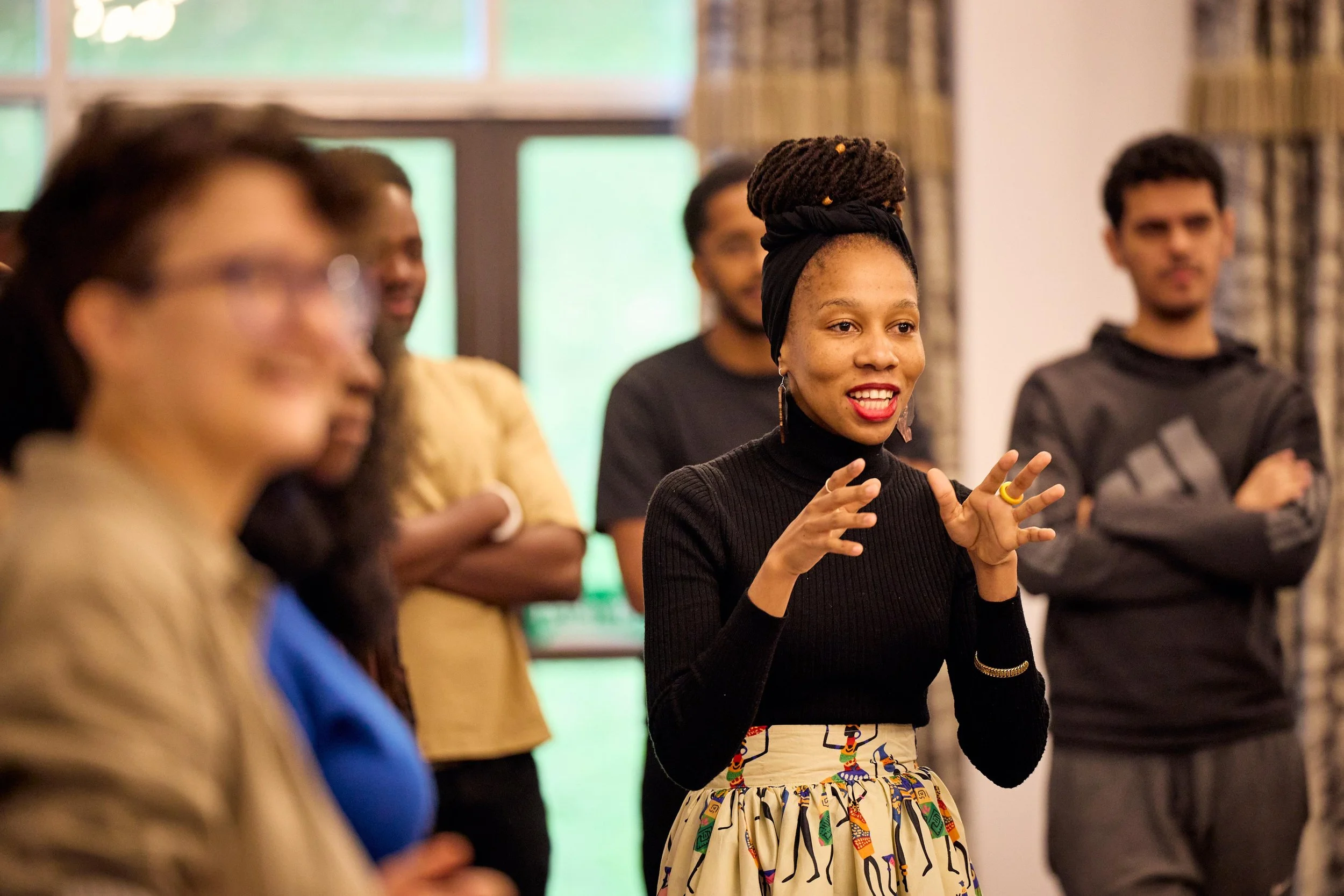I recently had the opportunity to interview a number of experts who focus on the mental health aspects of human rights work. This included a clinical psychologist, a psychologist who serves as a protection officer and well-being lead, and the Executive Director of a group that focuses on violence and reconciliation. One of the most striking themes that emerged was their personal reflections on how constant exposure to people who have been victims of violence and trauma can shape the way they interact with others.
One individual shared how her exposure to violence began to shape her, often without her realizing it. She recounted how working within the realms of reconciliation and understanding trauma subtly influenced her interactions with others. It was a profound moment when she realized just how much of that trauma rubbed off on her and affected her work and personal relationships.
Sharing in this moment sparked a deeper reflection within me about how people show up in their daily lives without recognizing how their identities might be a product of the trauma surrounding them.
This isn’t just a phenomenon limited to those who work on issues that involve violence or trauma. It extends to ordinary, unsuspecting individuals as well. Consider the experience of a podcast host and producer who helps others share their stories of violence, or a doctor treating patients who have suffered harm. Even a lawyer representing victims of abuse carries the weight of those narratives. Or think of the children of those impacted by trauma— how does the experience of having a parent in prison or a loved one abducted shape their identities?
The entire conversation was challenging for me, especially when I considered that many people might never recognize the influence of trauma on their lives. For those fortunate enough to have a moment of clarity, the realization that their identity is intertwined with the trauma they've witnessed – either firsthand or through the experiences of others – can be both enlightening and unsettling. Yet countless others drift through life, shaped by traumas that often have little to do with them personally.
This reflection led me to consider how violence acts as a site for identity formation. Violence becomes a reference point for the identities we carry, ultimately shaping our understanding of ourselves. It’s a scary notion to think about. Can we truly define ourselves outside of the violence that surrounds us? Are our thoughts and beliefs inevitably colored by these experiences?
I found it fascinating – and also alarming – that the trauma we experience in the present is often a culmination of past traumas, some rooted in our childhoods. As we age, the complexities of our identities become woven together with decades of experiences, including family dynamics, community interactions, educational environments, and personal relationships. All of this contributes to a rich tapestry of trauma. When we think about it this way, it can be overwhelming. It’s not merely a question of how we got here; it’s about understanding the implications of being here now.
The interconnectedness of our experiences means that the trauma and violence that shape us also extend to those around us. We are part of a chain, and how we carry our trauma can impact our relationships with friends, family, and colleagues– perhaps especially for those of us who work in the human rights field. This reality is mind-blowing when you consider that every interaction – positive or negative – can carry the weight of our histories and the traumas we’ve encountered, often unconsciously.
As we engage with a world increasingly shaped by digital interactions, the line between online and offline experience blurs. We consume news, witness suffering, and build relationships with people we may never meet face-to-face, yet their traumas resonate deeply within us, shaping us in ways we never imagined.
The question, then, that looms large is this: what must happen if our identities are intrinsically tied to trauma? Do we need to unravel ourselves to break free from these attachments? And if so, what does that even mean? What does that process look like? It feels akin to the chaotic scenes we often see in movies where the world is ending, and people fight to survive, hoping against hope that there is something beyond their current reality. If our identities are shaped in the crucible of violence and trauma, then what does it mean to seek a new understanding of ourselves?
This conversation has stayed with me, underscoring the importance of recognizing how trauma influences not just our own identities, but also our interactions with the world around us. It compels me to reflect on how I show up in my own life and the lives of those around me. By engaging with these complexities, I think we can begin to understand ourselves and the communities we inhabit in a deeper, more meaningful way.
These realizations have shifted how I approach my work. I now see myself as human first, not immune to the trauma I encounter in both my work and personal life. This awareness deepens my empathy and reminds me to be more mindful in how I carry my own experiences. Moving forward, showing up means pausing when needed, being present with others' stories of pain, and making space for healing– for myself and for those I serve.
Mantate Mlotshwa is an advocate for the meaningful contribution of women and youth to democracy and governance processes. She is a producer and co-host of The Resistance Bureau, an online platform that spotlights the human struggle for freedom, where a new generation of leaders share stories of resistance, resilience, and build solidarity. Follow on Twitter:@MantateQueeneth
DISCLAIMER: The views expressed in this publication do not necessarily reflect the opinions of Vanguard Africa, the Vanguard Africa Foundation, or its staff.

